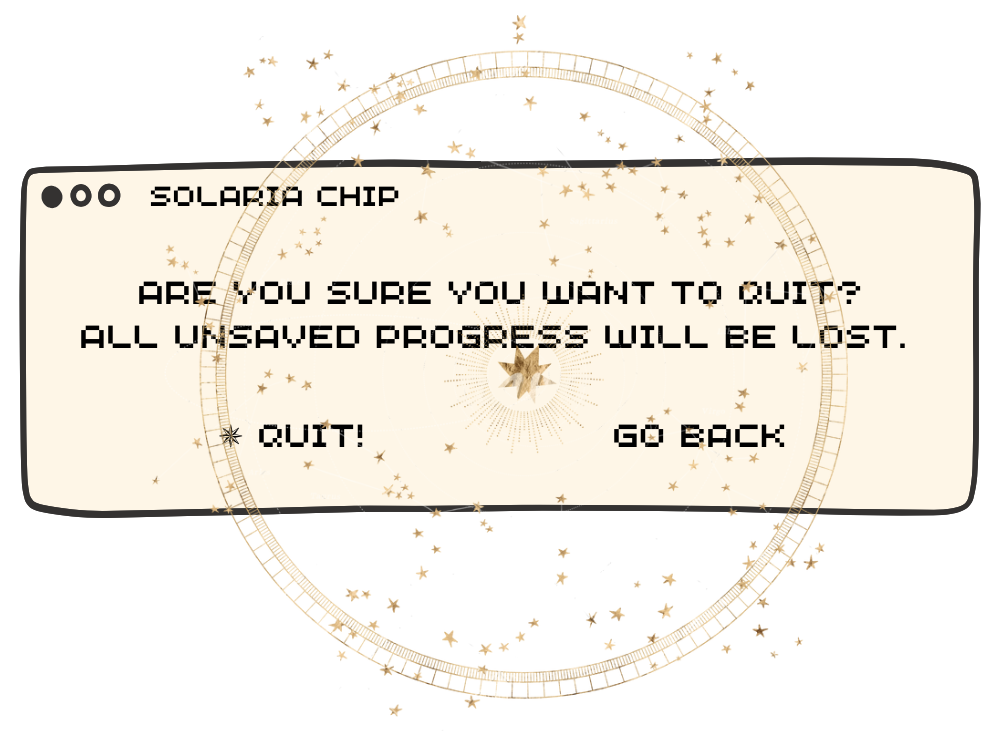Quit or Grit

From an early age, we are taught that the most successful people never quit. Quitters are the lazy and unambitious–deemed as failures or losers without a story to tell because they gave up too quickly. Therefore, most people aren’t informed about the right and ripe conditions for quitting because of the omnipresent stigma attached to it. The choice to quit is often avoided until it becomes intolerable and assiduously known, and sometimes it’s too late. There is often shame behind people who leave their job, drop a class or major, give up on a sport or hobby, get divorced, end friendships, back out of a business deal or investment, but without knowing the context, the default underlying presumption tends to be full of criticism and judgment about an incapability to persevere.
In effect, grit and quit are often speculated to be polar forces. Grit is a virtue that any worthy main character has and every bit essential for building character. Psychologist Angela Duckworth, author of the bestseller Grit: The Power of Passion and Perseverance, prescribes grittiness for concise achievement over raw talent. In the first chapter, Duckworth cites her study of the West Point induction training to establish a common “grittiness” as the most significant factor for predicting success. She asserts,
“Our potential is one thing. What we do with it is quite another.”
It is difficult to argue with the rationale that deliberate application by showing up consistently will bring you closer to a better outcome or reaching a goal. This acknowledgement is also a central stipulation for quitting and finding the right time to do so. While persistence is often a quality that is admired and more celebrated than resignation, we perpetually dismiss the difficulty and the importance of knowing when to walk away. By enduring untenable circumstances, time, energy, and potential is not only diverted to the attempt itself, but also to the recurring internal dispute about making a firm decision to call it quits.
No one can predict the future and determinism is largely still up for debate. When we quit something, we often enter a realm of uncertainty and possess less information about how the narrative may turn out. The same goes for starting anything new, with a loose probability conjecturing on the endeavor working out. But when the dust settles, and the cons start to outweigh the pros, you find yourself in a difficult position and battle with indecision with each day you continue to tolerate it.
In economics and psychology, the sunk cost fallacy reflects our predisposition to endure terms once any sort of investment is made. This irrational behavior is prevalent for human decision makers and interestingly, pigeons are prey to the Concorde fallacy as well. In a series of experiments arranged in sunk cost decision scenarios, the bird brain demonstrated persistence until a better alternative was clearly made available. For humans, the distinction is severely much more complex and nebulous, and more paralyzing, the ultimate denouement may leave us feeling regretful. As a result, people tend to avert losses to a much greater extent. When experiencing the joy of an equivalent gain, the pain from a loss is doubly profound, leading to irrational choices prearranged in the cognitive (see also commitment or escalation) bias to protect assets.
Annie Duke, former professional poker player, psychologist, and author of the book, Quit: The Power of Knowing When to Walk Away unfolds the cognitive heuristics of quitting behavior and offers her wisdom that won her over $4 million playing and being the only woman to have won the World Series of Poker Tournament of Champions. In poker, there is a saying that it is one long game. One hand matters very little over the course of the match, but to maintain your place at the table meant that in the long run you were getting yourself in the best situation so that you were making money. Going broke meant that you were investing in losing situations, possibly getting caught up in continuing to play a single hand to the point where it mathematically no longer made sense. The biggest difference in how professionals play and how amateurs play Texas Hold ‘Em is often seen in the starting hand. Up to 25 percent of the professionals will play with the first combination, whereas amateurs often play pre-flop. As the draw proceeds and more bets are incurred, this pattern of commitment bias persists for rookies more apt to chase an unprofitable hand. Professionals understand that putting more money forward is not betting with a positive return on investment so they opt to fold their hand more often, whereas the amateur has fixed their attention to the money they have already invested and believe they cannot recover if they were to fold. The risk of a loss in any shape or form invokes cognitive dissonance, which makes it difficult to make rational decisions to quit at the right time.
Implementing strategies for quitting appropriately will not only help you avoid the pitfalls of the sunk-cost bias, but ultimately benefit you to reclaim time and energy from tolerating an objectionable state of being or entrapment.
✵ Establish Advanced Thinking with a Kill Criteria
Wielding more information will lead to better decisions, but not always. Predicting an outcome with complete accuracy is unlikely, and it is impossible to know every bit of information that could potentially influence any given path.
Setting limits before initiation is the greatest optimization, but is difficult to gauge and test without clear experience. When a situation begins to present itself unfavorably, begin making an assessment about the capacity and criterion to terminate a venture.
For example, “I will keep committing to X for X amount of time and evaluate the signals that make X worth pursuing.”
Once you have reached that allotment, it may be evident that there are several indicators authorizing your exit. Rare is the case for reassessment if you initially formulated a fair boundary, albeit tempting for all the psychological reasons above. In the same way set in a motion a plan to achieve a goal, people were found to act in accordance with their intentions, creating conditions for action by control.
✵ Accountability
Posit a public and social contingency plan by informing a friend (perhaps better yet, find a nonpartisan) of your kill criteria. Interactions of accountability not only encourage you to follow through, but also provides perspective and clarity to the situation. For example, if you’ve ever been a witness to a situation where someone is pursuing something that isn’t worth it, the decision seems obvious to you. How can this person see they should stop or walk away? Inviting a person you trust that has your best interest to keep you accountable to your criteria and timeline and give them permission to speak the truth. It isn’t an easy decision for you and enlisting help can give you the support to stick by your actions.
✵ Create a goal hierarchy
Quitting because things are hard is not a good reason to quit. Realizing when something is not worthwhile is the real difficulty, regardless of the difficulty.
When you make the choice to quit you are not making one decision, but a plethora of others by freeing up this burden on yourself. Quitting does NOT mean recessing into a weaker state, but coming out stronger with more knowledge and experience about finding out what worked and what did not.
Everyone has a quitting story. A few years ago, I applied this to quitting my first job after graduating from college and spending a month unemployed for the first time in years. Admittedly, I didn’t have much of a concrete plan at the time–and I suddenly had a lot of free time.
I was mostly banking on being hired somewhere else and trying out a new adventure. However, finding another means of financial subsistence was only a smaller goal after making the decision to quit. Ultimately sitting at the top of my goals was a time for personal growth. Sometimes that means traveling the world and going on a soul searching journey. Personally, I know that what works for me is keeping my mind occupied. I love traveling, but I had an issue with mental health that cropped up from work. I wanted to enter the work force and build a meaningful career, but I knew I couldn’t very well take these issues with me to the next place of employment.
In the brief month I was unemployed I was thoroughly challenged, but by quitting I was able to have more energy, attention, and time to tackle and handle problems and inconveniences when they crop up. I plunged into this decision with great uncertainty as to what my future looked like, but shortly I was extremely lucky and and offered an unbelievable position and meaningful career. Quitting ended up being a life-changing decision that worked out, and setting up a plan to work on after quitting and being ready with a contigency plan always helps.
As someone who is open to trying anything, I’ve been able to walk away from many things in my life such as relationships, hobbies, and entire paths from knowing that one decision is not the end of the world because there are other goals to strive for in a large scale process of elimination. And life will go on regardless of any decision that you make.
Nobel laureate, psychologist and economist Daniel Kahneman who wrote the seminal paper on loss aversion also wrote in his book, Thinking, Fast and Slow, on the power of thoughtful deliberation when making decisions. Kahneman dives into cognitive heuristics–most significantly, The Optimistic Bias that I have a tendency to apply when quitting appears to be the most logical option by adding to the idiom that “things usually work out for the best” by people who are able to work it out better.
“Optimistic individuals play a disproportionate role in shaping our lives. Their decisions make a difference; they are the inventors, the entrepreneurs, the political and military leaders – not average people. They got to where they are by seeking challenges and taking risks. They are talented and they have been lucky, almost certainly luckier than they acknowledge… the people who have the greatest influence on the lives of others are likely to be optimistic and overconfident, and to take more risks than they realize.”
Unlike a video game, everyone gets only one life–but people are often lulled by what feels safe and comfortable. I choose to believe that risking the unknown bears the ripest fruits of possibility and widens the vista of better options. If you are living in fear or regret that losing in a subpar scenario might be the only thing you have or feel that you are tied to your obligations, you are discounting all the other choices the world has to offer and you are doing a yourself a disservice. Stop making excuses. The perfect propriety of a decision can’t be judged from the outcome, and learning the right time to quit or grit is at its most optimal when the future is truly uncertain under the circumstances at the time. The most logical and practiced quitters are fully equipped with the tools and wisdom to make better decisions in the long run, and unlike a video game, our progress is always saved.
psychology culture development books 